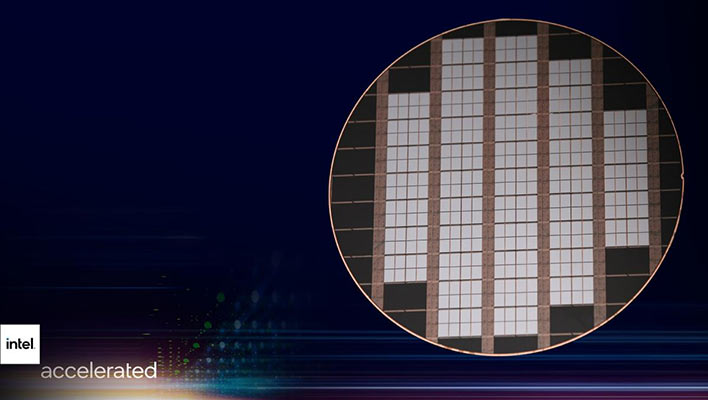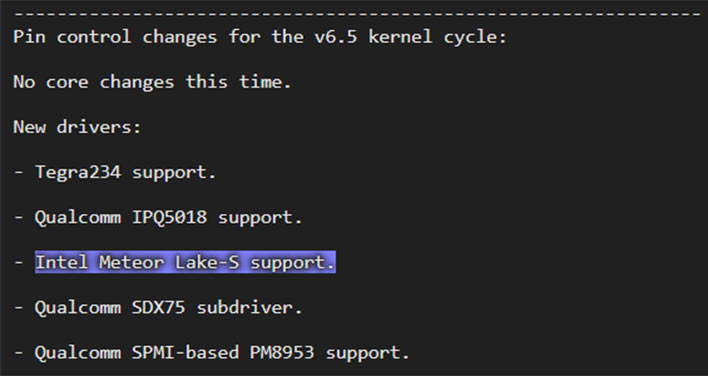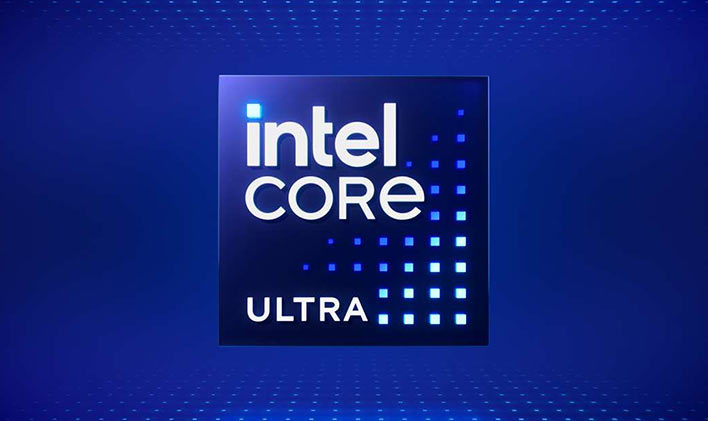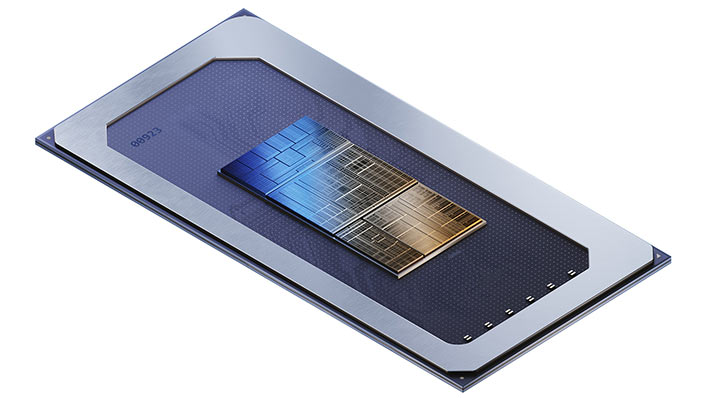If Meteor Lake CPUs Are Cancelled On The Desktop Someone Needs To Tell Intel

Intel's Linux engineers have pushed Meteor Lake-S (MTL-S) driver code for implementation in the Linux kernel. The publication of this code is interesting to see for two main reasons: it shows Intel is busy working on implementing support for its latest advanced processor architectures in Linux, and there have been several reports indicating that MTL-S has been shelved due to Intel deciding on a Raptor Lake (RPL) refresh for desktops.

Within the driver code under scrutiny, you can see that MTL-S pin control changes have been implemented for the Linux 6.5 kernel. Linux pin control or 'pinctrl' drivers provide a framework for configuring processor and I/O pin functions, multiplexing, and so on. It is notable that other MTL series chips were already supported, and this desktop family added on June 5, reports Linux specialist site Phoronix.
The introduction of this MTL-S driver for Linux 6.5 sparks our curiosity. As per the headline, having Intel engineers work on such code seems to contradict the recent roadmaps seen in presentations in China. It was our understanding that desktop users were going to be steered from 13th Gen Raptor Lake to 14th Gen Raptor Lake Refresh processors, while a subset of laptop / portable users would get the first Meteor Lake chips. Moreover, thanks to new branding, the first MTL chips will confusingly be described as the 'Intel Core 1st Generation Processors'.

This latest Intel architecture and generational changeover is already very messy, and after thinking we finally had a handle on the shenanigans, now we hear about these MTL-S drivers for Linux… Unfortunately, only Intel knows for now, whether the upcoming 14th Gen Core processors for desktops will be solely Raptor Lake refresh parts, or there will be some Core Ultra models for desktop using MTL technology.


